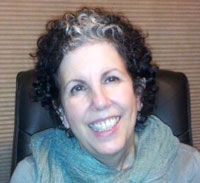The Sessions
Reviewed by Susan L. Orbach (USA)
The Sessions is a film based on the life of Mark O’Brien, a writer, poet, journalist, and quadriplegic. Ben Lewin, the director and screen writer, introduces us to Mark, a 38 year old man confined to an iron lung 80% or more of his day. The film challenges the preconception that Mark’s disability means he cannot be sexual, desirable, or loved. In The Sessions, Mark is front and center, and for many of us seeing the unrelenting nature of his physical challenges taps into our own fears of becoming disabled, as well as vulnerabilities related to childhood longings for dependency.
Mark’s priest, Father Brendan, is most like a psychotherapist in this film. He clearly is a tie to Mark’s past as well as the hope for his future. Significant elements of Mark’s past emerge: his polio and paralysis at age six, his parents’ choice to keep him at home and not in a nursing home, and the death of his younger sister, along with the guilt and self-blame he feels around her loss. In addition, we learn that his parents never discussed sex and he was treated as if he had no genitals. Feeling the acceptance and respect the priest had for his feelings, wishes, and desires allows Mark to eventually ask for his approval to seek out a sex surrogate.
Psychoanalyst Hans Loewald addressed the importance of the analyst as a new developmental object. Mark, ripe to transfer his childhood internalizations of his parents onto this priest, finds a surprising challenge to these expectations from the past. Father Brendan, as a developmental object, provides Mark with the hope that he can work through a core interference and inhibition in his path to integration of body and mind. Though he gets permission to be sexual from the priest, we see how difficult it is for Mark to act on this wish. The biggest obstacle for Mark in love isn’t his immobility from the neck down. It is his self-hatred and fear of rejection.
Through an object relations lens, we can see that his guilt, self-reproach, and sexual inhibitions maintain his internal connection to his parents. His parents loved him and rescued him but they likely did not see him as someone who could be a whole person and achieve a mature love either emotionally or physically. With his significant dependency needs, it feels tremendously threatening to develop and trust a sense of himself that differs so significantly from his parents’ perception of him. If he rebels, he fears he could be alone, with no one at all to love or love him back.
Eventually Mark and the sex surrogate, Cheryl, meet over the course of four sessions rather than the six sessions initially planned. Cheryl is the one to suggest that the meetings be curtailed. The patient and therapist fall in love and Cheryl believes that the two last sessions will make the inevitable ending of their relationship all the more painful. There is a question here: Who is she really trying to protect more, herself or Mark?
Mark’s experience of Cheryl as omniscient and omnipotent is heightened by their sexual relationship. He is unable to masturbate due to the inactivity of the majority of his muscles. Cheryl provides him sensual and orgasmic pleasure and helps him connect with his body. Following the end of the relationship he is left to struggle with himself in a new but nonetheless painful way. The hope is that he will not feel alone in the way he did before, but more that he can feel separate yet connected to others as a person with a mind and a body.
Link: http://www.thesessionsmovie.com/
Susan L. Orbach, Ph.D.
26789 Woodward Ave. Suite 209
Huntington Woods, MI 48070
Email Susan Orbach



